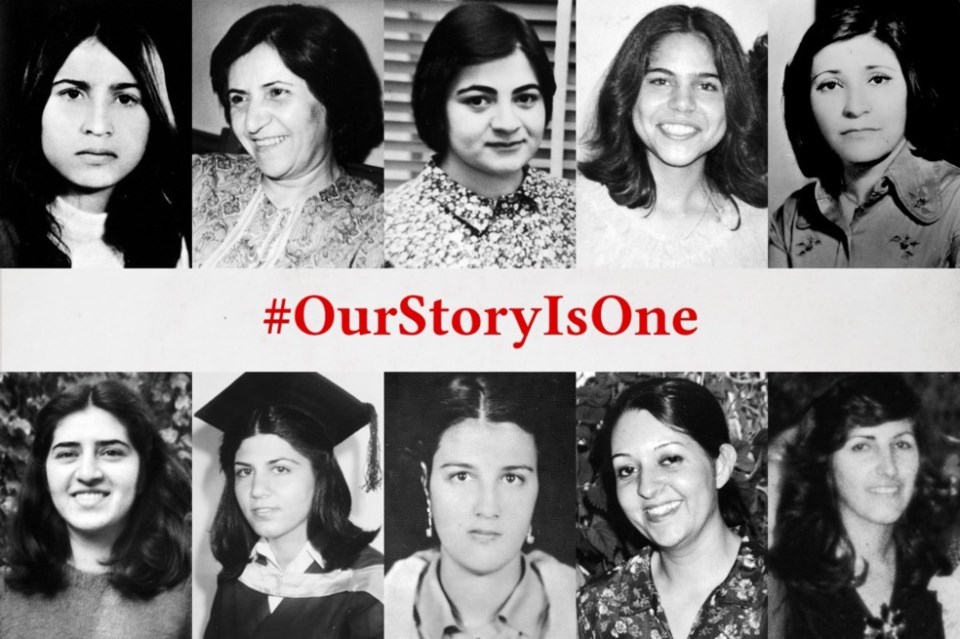On Sunday June 18, the Bahá’í community will be commemorating a devastating anniversary, the death by hanging of 10 Bahá’í women in a public square in Iran. The public is invited to attend the event, in a show of solidarity for all that they represented.
The women were hanged exactly 40 years ago, one by one in the hope that those remaining would recant their faith. Most were in their twenties. The reasons given for the death sentence were Zionism, spying for Israel, and teaching moral education classes to children.
The women’s bodies were not returned to their families but buried without dignity or rites in the Bahá’í cemetery in Shiraz. To add to the community’s pain, in 2014 that cemetery was demolished and made into a “cultural and sports” building.
Iran often elicits conflicting feelings. It’s the land of Rumi and Hafiz, of mysticism, Persian gardens and tall mountains. It’s the cradle of our Faith, where both of its Prophets were born, the Báb in 1819 and Bahá’u’lláh in 1817.
Of course, it’s also the land where the Báb, who brought teachings of unity and equality for a new age, was executed by a firing squad of 750 soldiers in 1850. Three years later, in an effort to extinguish the nascent faith, Bahá’u’lláh was exiled to Baghdad, then Turkey, and eventually to the land that would become Israel. Thousands of their followers were brutally tortured and killed in those early years. Persecution has continued in various forms, including imprisonment, seizure of property, and denial of access to universities, up to the present day. Unable to flourish in freedom in Iran, the Bahá’í Faith has established itself in almost every nation of the world.
But before we rush to judgement on Iran or the superbly beautiful religion of Islam, it’s important to note that that is not what this issue is about. The Qur’an itself teaches that there should be no compulsion in religion. This also isn’t about the wonderful people of Iran, renowned for their warmth and hospitality. They have been suffering for years, the lives of the majority becoming far more painful with the imposition of international sanctions. And the valiant fight for human rights by Iranian women following the death of 22-year-old Mahsa Amini last year has led to the killing and imprisonment of hundreds of innocent people.
The Representative of the Bahá’í International Community to the United Nations in Geneva, Simin Fahandej, recently issued a press release drawing the parallels between the poignant anniversary of the hanging of the 10 Bahá’í women and this important moment in Iranian history: “Today, in the blood, tears and wounds of thousands of young women in Iran seeking equality, we can see echoes of the injustice suffered by the 10 women of Shiraz whose tragic death touched the lives of many. We see the same spirit, the same choice being made: to stand up for the principles of justice and equality with utmost effort.”
The teachings of the world’s religions regarding the essential worth and dignity of every person is a spiritual reality, but it needs laws and policies that will support it. Until the government of that country, as with any other country, recognizes wrongs and commits itself to uphold the human rights of all its citizens, there will be no justice, no peace and stability for that nation -- or for the world. This is the real issue. That hard process of reckoning and reconciliation is absolutely necessary for a future where all can thrive and flourish.
Everyone is welcome and warmly invited to attend the commemoration, which will include prayers for a peaceful future for Iran and for the world. It will be held at 7 pm on Sunday, June 18, at the Cook St. Activity Centre, 380 Cook St.
Sheila Flood is the E.D. of the Victoria Multifaith Society and member of the Bahá’í community.
You can read more articles on our interfaith blog, Spiritually Speaking at https://www.timescolonist.com/blogs/spiritually-speaking



